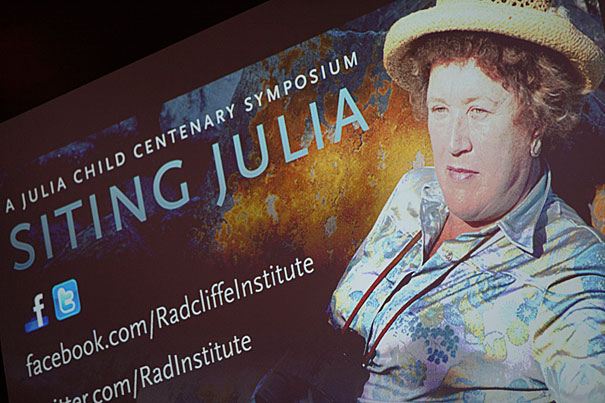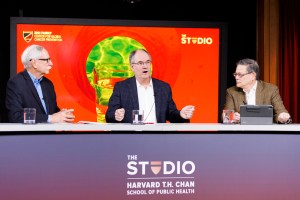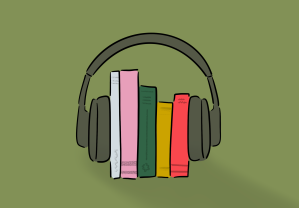Arts & Culture
-
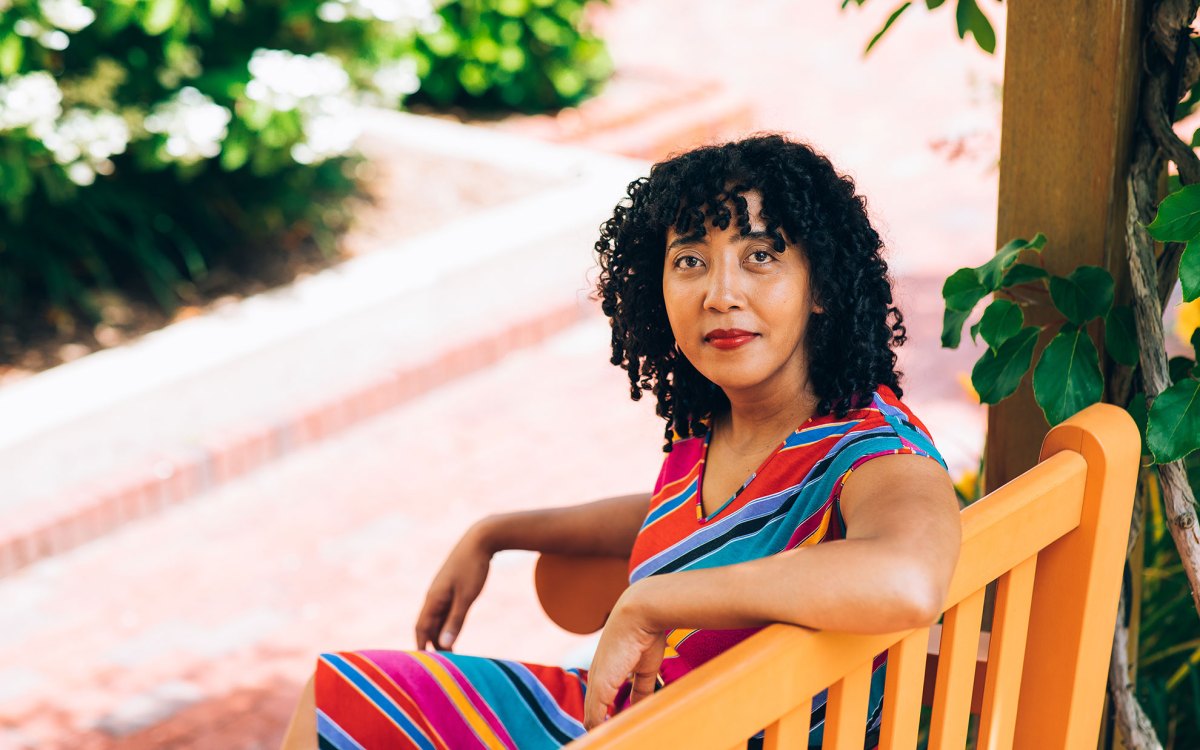
Immersed in Toni Morrison’s multitudes
Professor’s book is an appreciation of Nobel-winning novelist’s ‘difficult’ oeuvre — and a defense
-
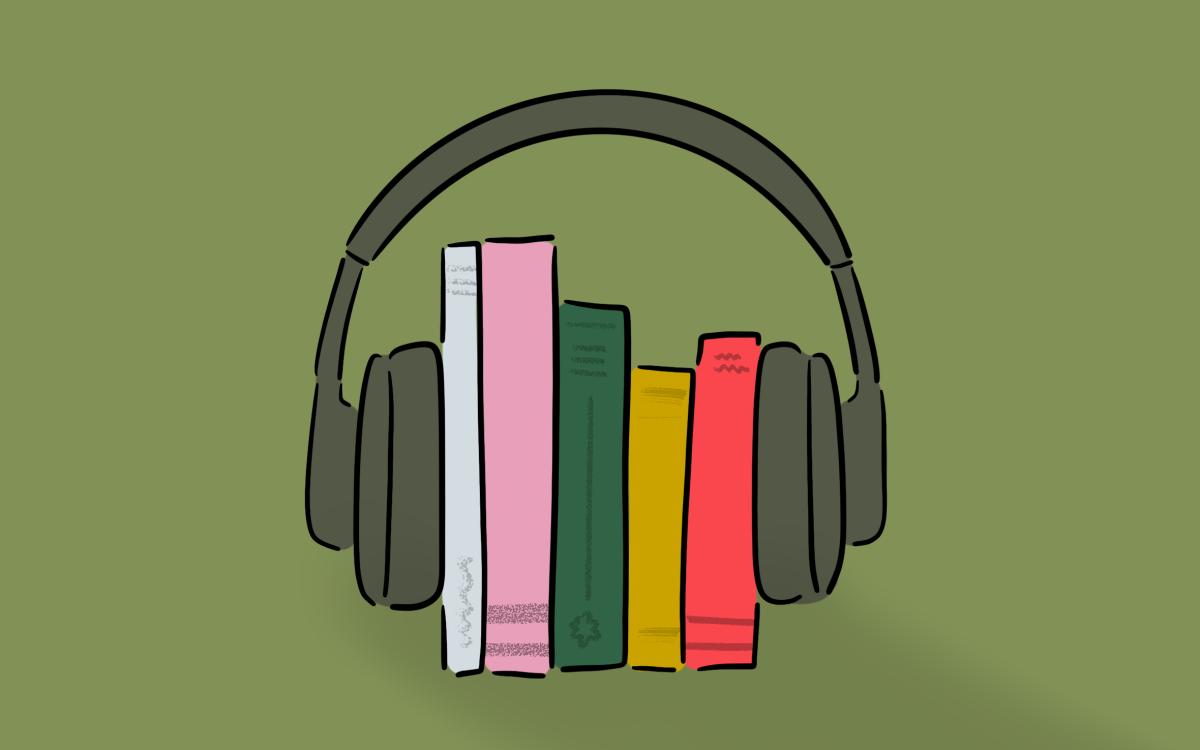
Audiobooks don’t really count as reading? Think again.
Education scholars say rigor, learning same as paper, stigma an unnecessary hurdle
-
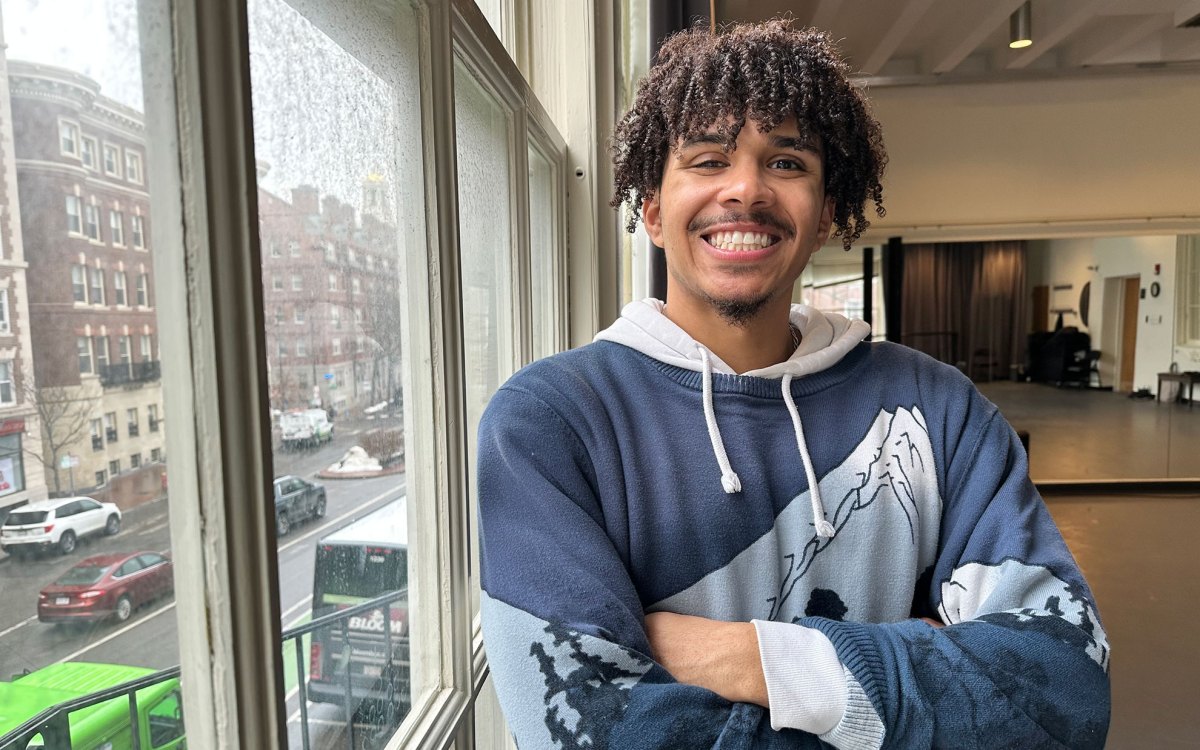
Retelling Frederick Douglass’ story, with a soundtrack
Senior composes musical about abolitionist’s early life
-
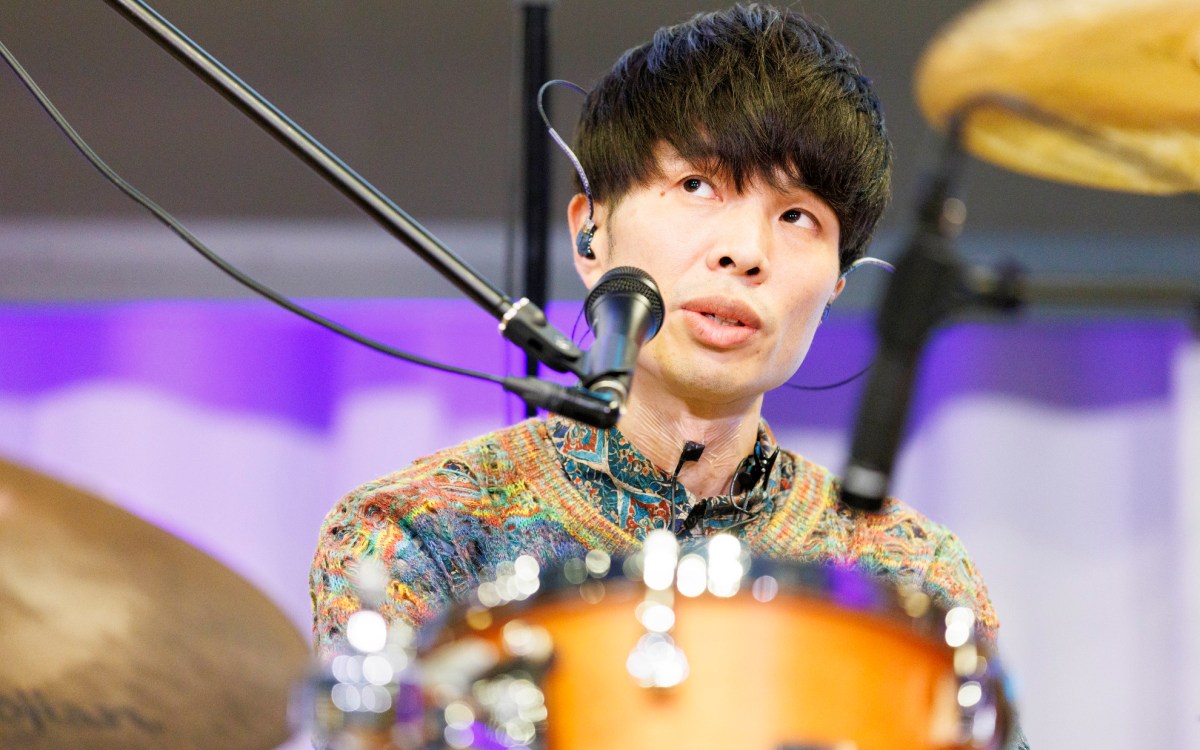
‘The sound stopped suddenly’
After rare condition robbed drummer of ability to play music, science led him back
-

Moved by what’s missing in Homer’s ‘Harrow’
Curator launches series steeped in U.S. history
-

Tina Fey’s keys to a good joke: Snark, confidence, surprise
Comedian keeps Harvard crowd laughing with longtime co-writer Robert Carlock ’95
-
An ancient statue, re-created
Harvard’s Semitic Museum is employing a high-tech response to the destruction of 3,300-year-old figures, using 3-D scanning to repair a ceramic lion that was damaged by the Assyrians.
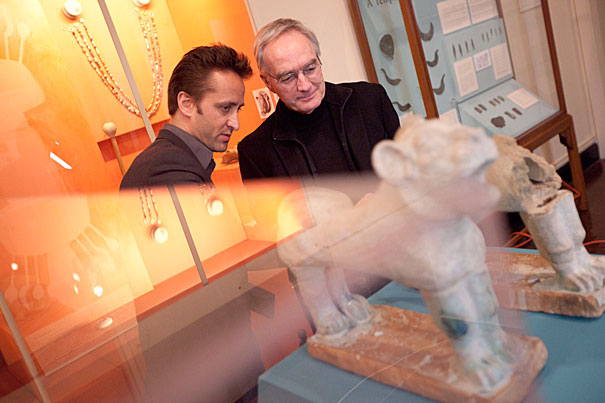
-
Lincoln’s dimensions
Screenwriter and playwright Tony Kushner sat down with President Drew Faust to dissect Abraham Lincoln’s legacy and talk history, politics, and writing after a Harvard-sponsored screening of his new biopic, “Lincoln.”
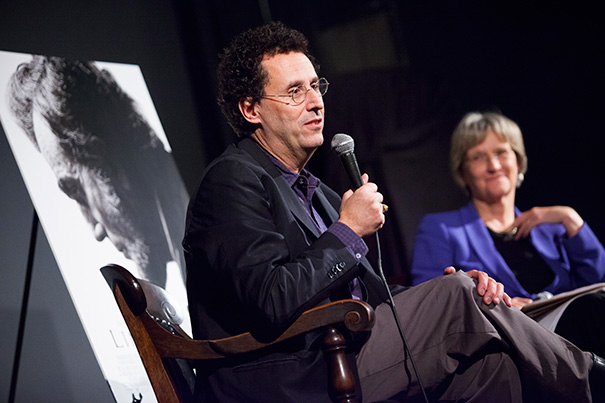
-
Apocalypse now? Hardly
During a sometimes tongue-in-cheek lecture on Wednesday, Professor David Carrasco discussed the historical origins of humankind’s periodic preoccupations with the apocalypse.
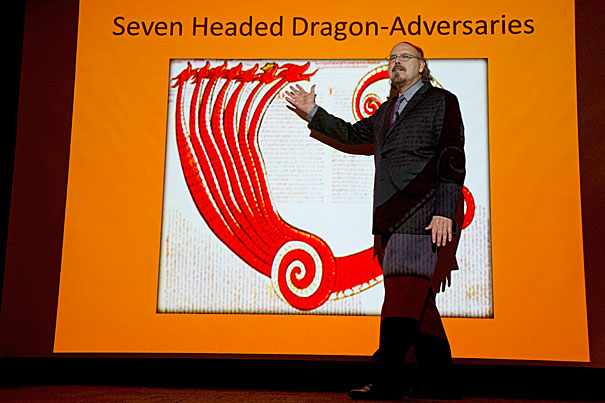
-
Shadow and substance
Harvard alumnus T.S. Eliot published 10 poems in the student-run literary magazine The Harvard Advocate between 1907 and 1910, including the one below.
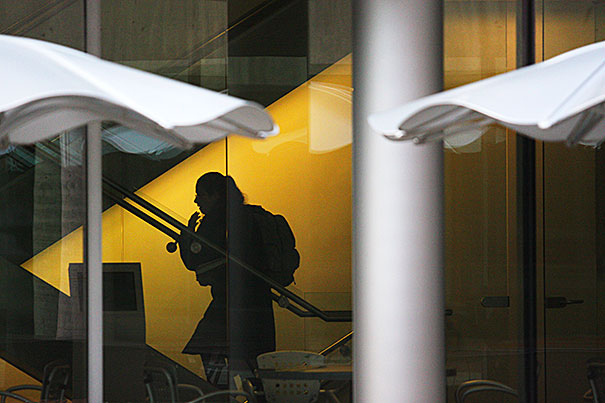
-
Disruptive music
Harvard Professor Ingrid Monson during a fellowship at the Radcliffe Institute for Advanced Study is exploring the music of Malian Neba Solo.
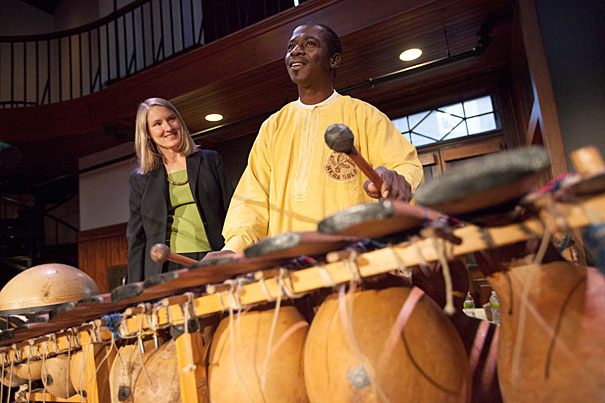
-
To understand, make a map
“Cartographic Grounds,” an exhibit of new and old mapmaking at the Harvard Graduate School of Design, intends to inspire a new generation of designers to draw, with precision, what they see, and to present, with art, what they imagine.

-
Note taking in a clickable age
A recent Radcliffe symposium explored the history and future of note taking.
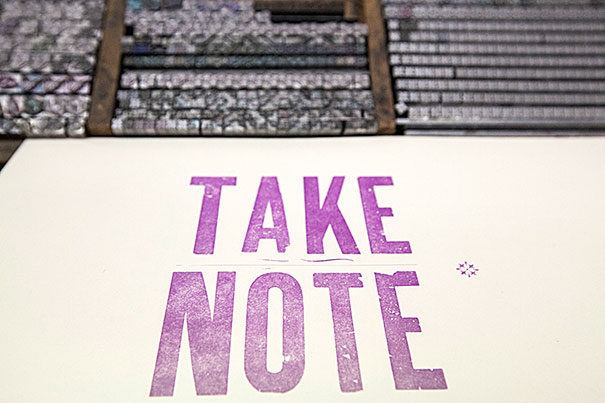
-
Poetry in the making
David McCann, the Korea Foundation Professor of Korean Literature, is spreading his love of sijo, a poetic form.
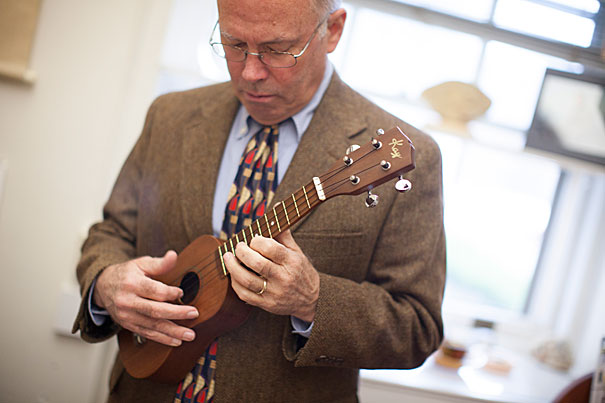
-
Creating a whole from fragments
A show by artist Maria Magdalena Campos-Pons, which examines issues of family and the Afro-Latin experience in America, opened Thursday at the Neil L. & Angelica Zander Rudenstine Gallery in the W.E.B. Du Bois Institute for African and African American Research.
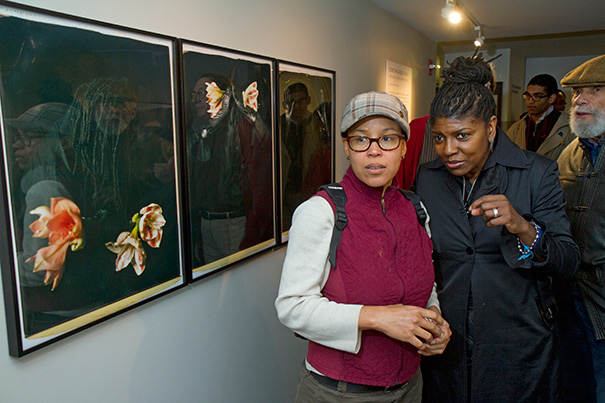
-
Exorcising the curse of knowledge
Author Steven Pinker told a packed audience what is wrong with so much academic writing: It’s filled with abstract language, clunky transitions, clichés, “zombie nouns,” and “compulsive hedging.”
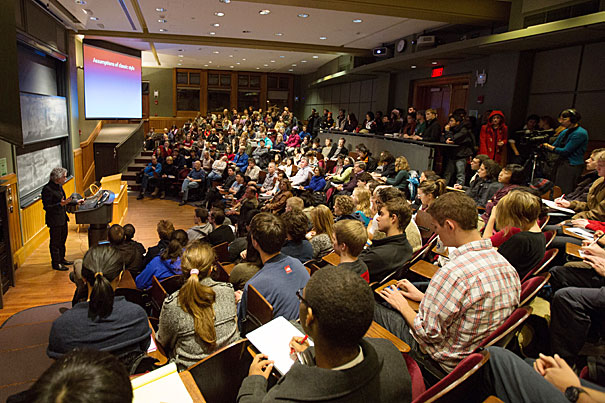
-
A collection unlike others
Harvard’s newly acquired Julio Mario Santo Domingo Collection is the largest of its kind in the world, centuries of art, literature, and popular culture artifacts related to the chief avenues to altered states of mind: sex and drugs.
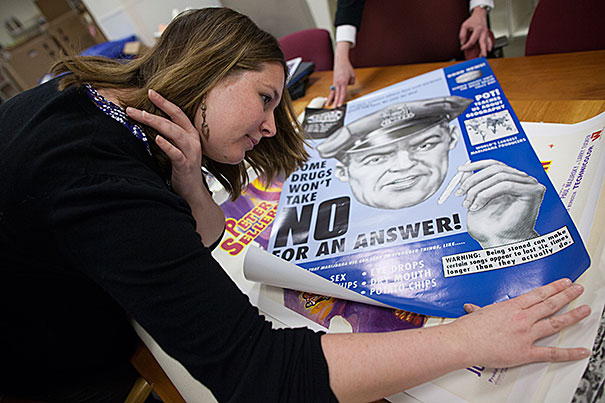
-
When jazz was king
Three local jazz figures came to Harvard to explore their passion for the music and its future as a singular American art form.

-
The art of the possible
Artist Kerry James Marshall’s massive woodcut print, on view at the Arthur M. Sackler Museum, challenges the artistic status quo.
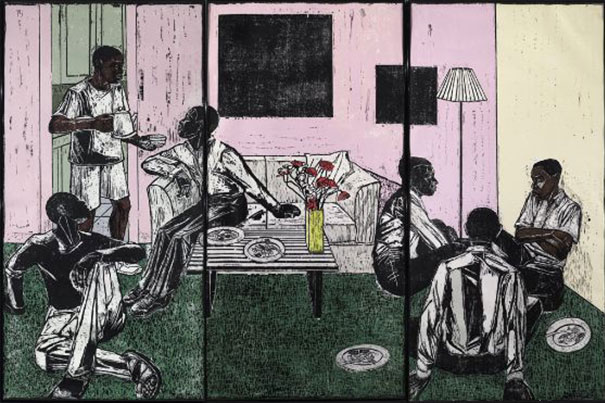
-
The designing woman
Radcliffe graphic designer Jessica Brilli does what she loves and loves what she does, using her artistic talent in her personal and professional life. A reception will be held Nov. 8 from 5:30 to 7 p.m.
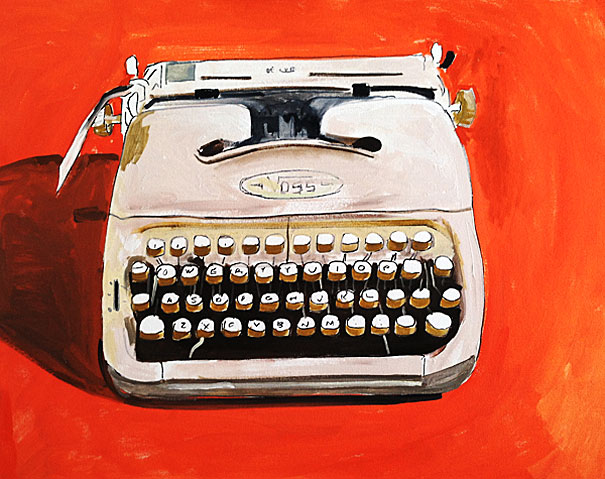
-
Found in translation
French historian Roger Chartier, whose work examines the history of books, publishing, and reading, explored the creation of literary archives and the appearance in the 1750s of authorial manuscripts during a talk at Radcliffe. “Take Note” will “consider the past and future of note taking on Nov. 1 and 2.
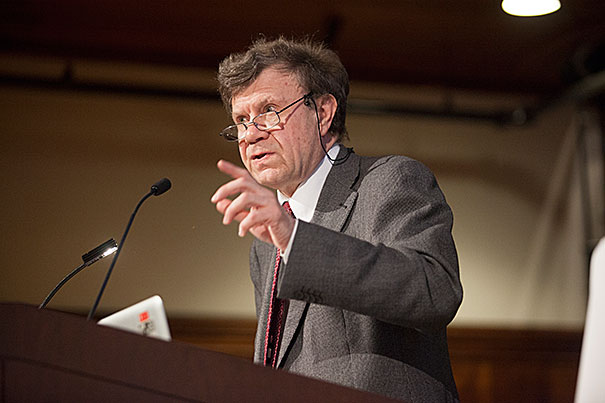
-
‘Hidden Lake’
Josh Bell, Briggs-Copeland Lecturer on English, reads his poem “Hidden Lake.”
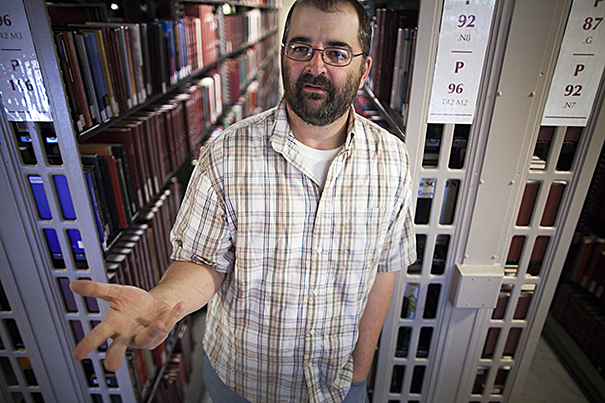
-
‘While Josh Sleeps’
Josh Bell, Briggs-Copeland Lecturer on English, reads his poem “While Josh Sleeps.”
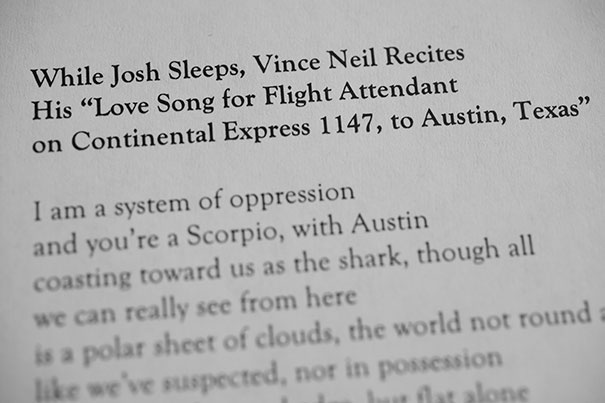
-
For whom Josh Bell tolls
Poet Josh Bell, the new Briggs-Copeland lecturer, calls on the spirit of rocker Vince Neil in his latest poems.
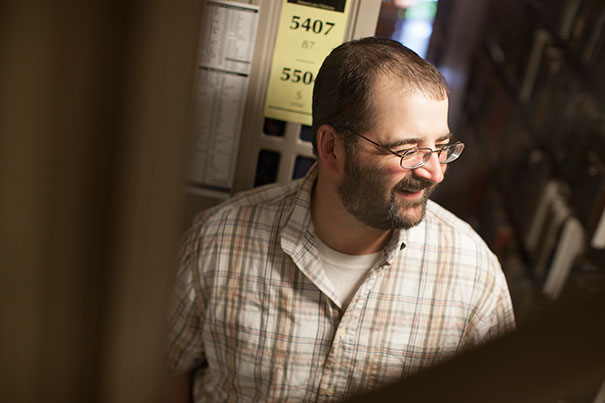
-
In on the act
More than 30 collaborators, including four Harvard undergrads, take the stage in the American Repertory Theater’s (A.R.T.) production of “The Lily’s Revenge,” at Oberon through Oct. 28.
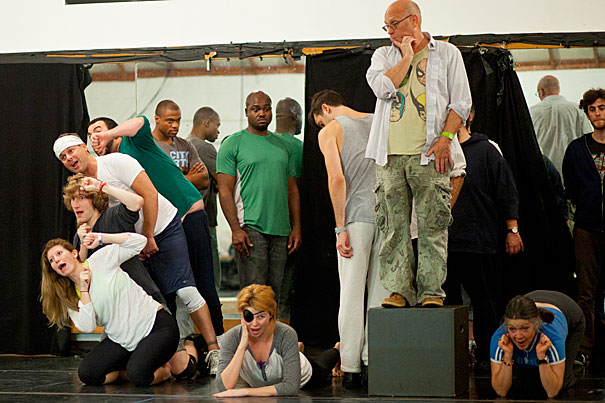
-
Evidence of greatness
“A Storied Legacy: Correspondence and Early Writings of Joseph Story,” online and at Harvard Law School, goes deep into the life and work of the scholar, best-selling author, and Supreme Court justice.
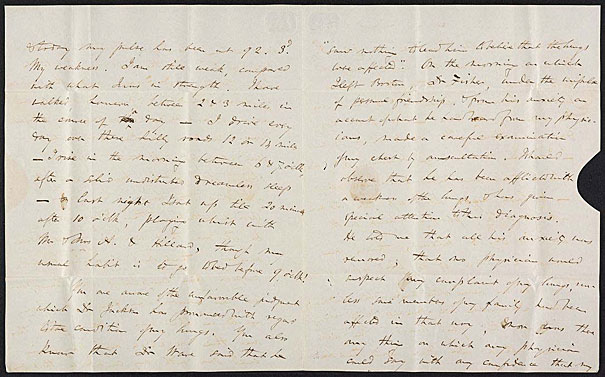
-
The art of saving art
Works by Le Corbusier and Joan Miró are back at the Carpenter Center after painstaking repair work by conservators at the Weissman Preservation Center.
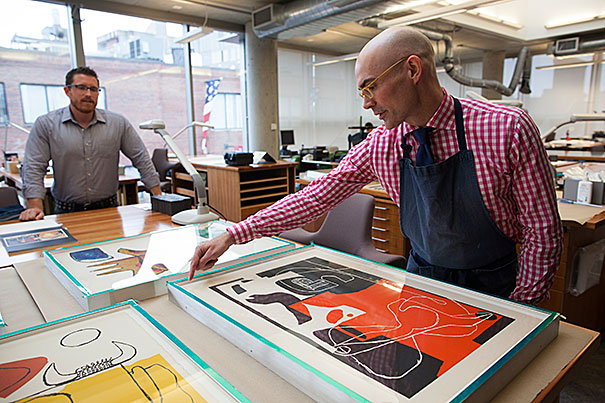
-
Under the skin
Participants in a Harvard panel drew from their own experiences in a look at life for mixed-race families in the U.S.: “American Masala: Race Mixing, the Spice of Life or Watering Down Cultures?”
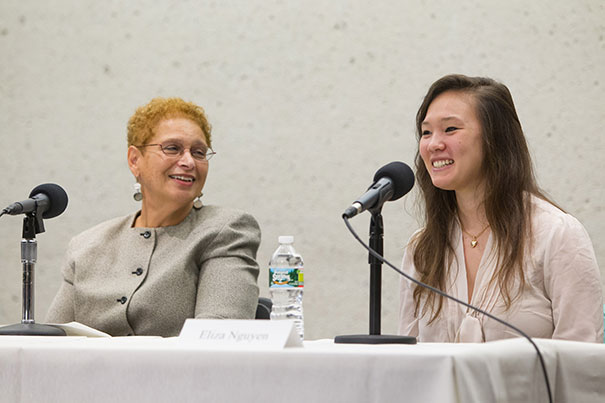
-
From concerts to context
Cultural historian and author Joseph Horowitz offered hope for the future of classical music orchestras in the form of innovative partnerships and collaborations.
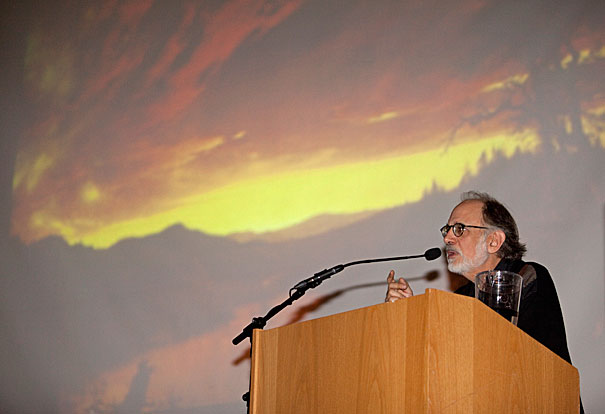
-
The epic of Hadzi
The stone sculpture “Gilgamesh” by the late Professor Dimitri Hadzi, who died in 2006, was donated to Harvard’s Mineralogical and Geological Museum by his wife, Cynthia.
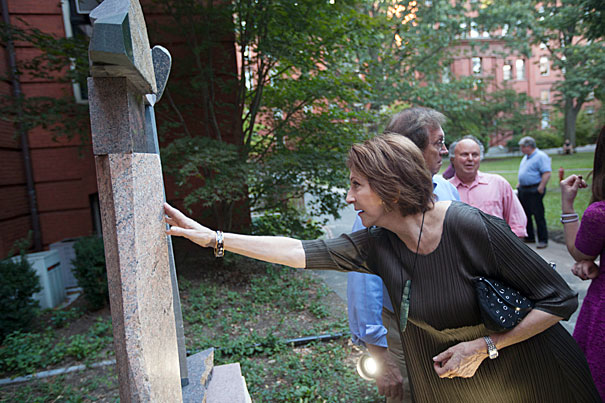
-
Future man
“Tectonic Visions Between Land and Sea,” at Gund Hall through Oct. 16, is a room-filling, eye-filling Kiyonori Kikutake retrospective.
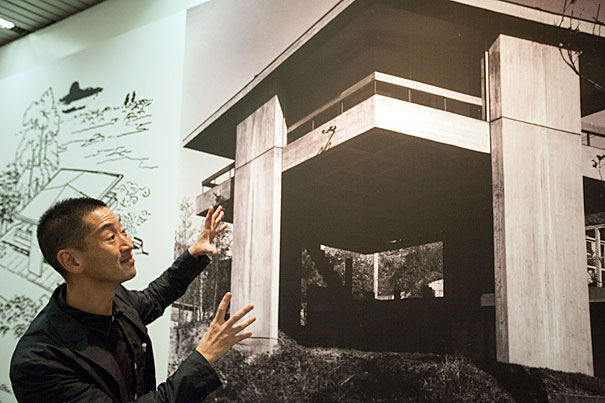
-
The sounds of nature, as music
The Woodberry Poetry Room hosts an evening of forest recordings and verse about nature, twinning sounds with wordplay.
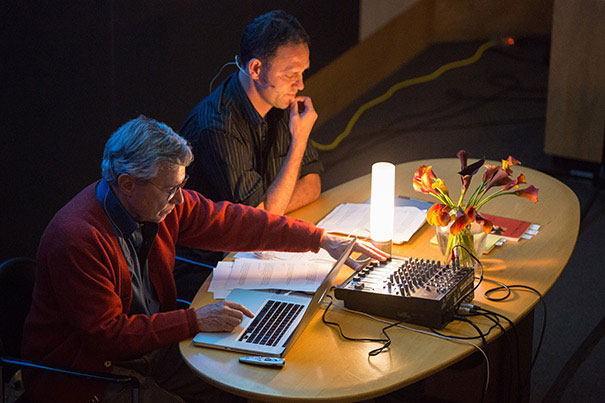
-
Back to Birmingham
Historian Diane McWhorter, a Harvard fellow, finds a surprising nexus between the racial segregation of Birmingham, Ala., in the early 1960s and some of the attitudes of the Third Reich.
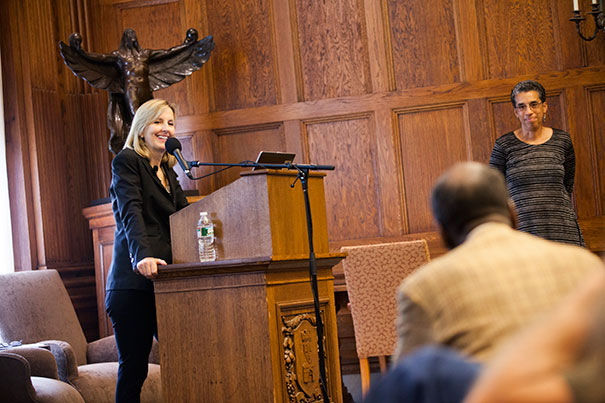
-
The book club goes online
Five of Harvard’s regional centers are teaming up on an outreach program to teachers that takes them on a literary world tour, through an online book club featuring readings that illuminate ordinary life in Libya, Morocco, the Dominican Republic, Russia, and Nigeria.
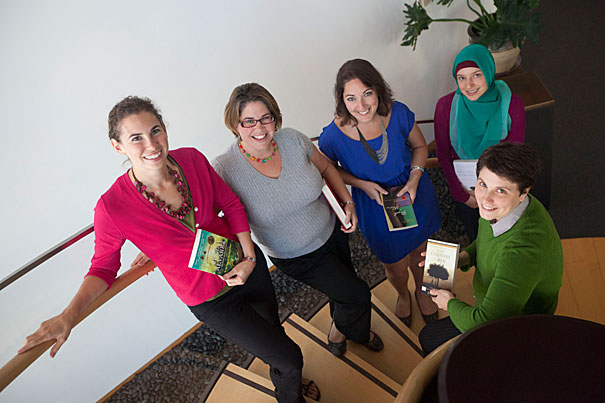
-
Speaking volumes
Over two days Harvard hosted a cohort of scholars in medieval sermon studies, a pursuit that helps illuminate the social and intellectual currents of the Middle Ages.
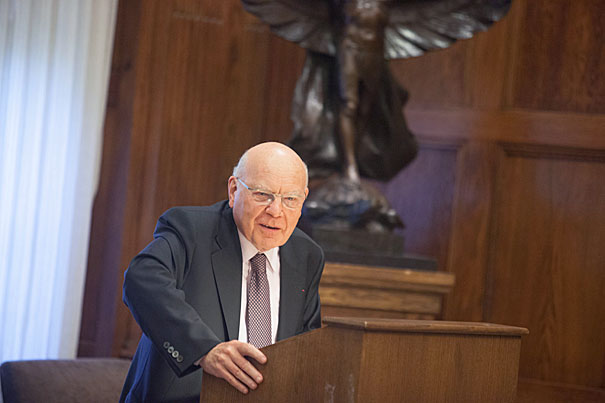
-
Bon appétit! Julia at 100
In honor of what would have been French chef Julia Child’s 100th birthday, the Radcliffe Institute for Advanced Study and the Schlesinger Library on the History of Women in America hosted an entertaining and informative daylong symposium.
